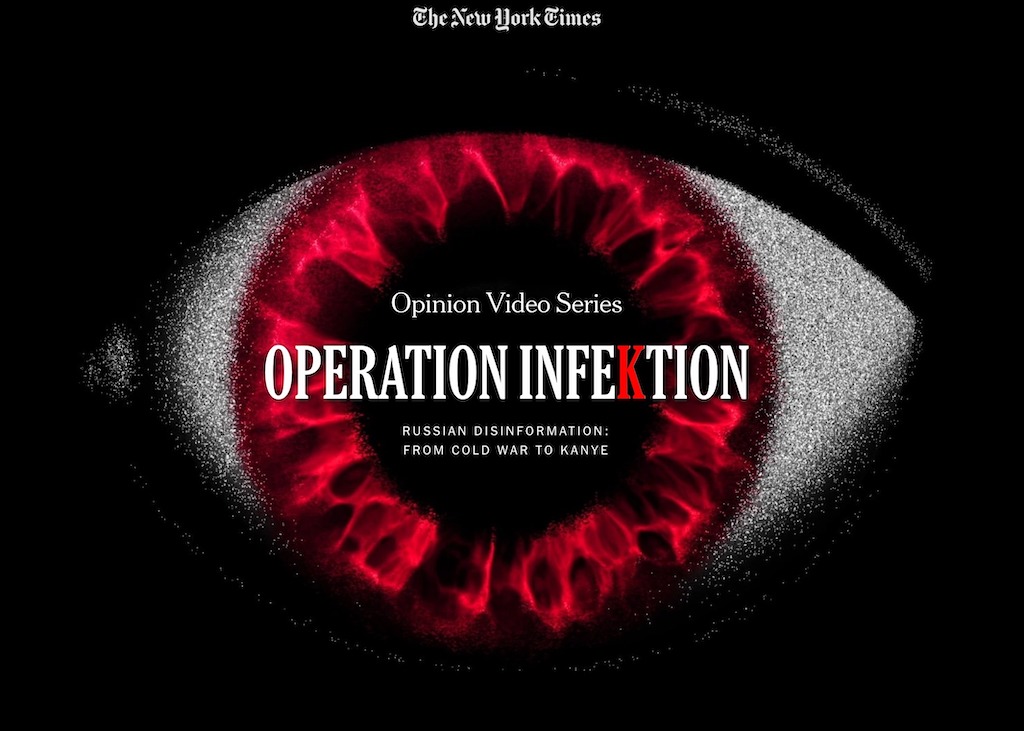Fake news is a true phenomenon. While deception and disinformation is nothing new, it seems to have infected our media and public discourse like never before. It now has the power to erode democracies, inform government policy, and control large regions of the population. Russia has perfected the art of this new kind of war like no other country. Produced by The New York Times, Operation InfeKtion explores Russia’s involvement in this “virus” of false news, why we’re increasingly susceptible to its influence, and what it all means for the future of fact.
The film opens by summarizing one of history’s earliest and most effective campaigns of deception. In 1983, a small New Dehli newspaper published an article promoting a rumor that AIDS was a U.S. invention designed to kill African Americans and homosexuals. Within years, that offensive distortion of truth was being reported as fact on the U.S. nightly news programs. That story, like so many others propagated in today’s mainstream media, was the work of Soviet spy masters. According to one ex-KGB operative, up to 85% of their agency’s efforts are devoted to the spread of these false stories.
Flimsily sourced, accented by attention-grabbing doomsday language, and hosted by the global reach of the internet, these alternative fact campaigns have managed to change the public perception of reality faster and more successfully than ever before. They destroy trust, evoke suspicion, and instill a sense of apathy amongst the masses for fact-based narratives.
Russian President Vladimir Putin – himself a highly trained KGB spy – has wholeheartedly embraced the practice with the hopes of reshaping the western world in his favor. The film delves deep inside their insidious tactics, including their recruitment of “useful idiots” to lend legitimacy to false claims. We see their efforts more and more frequently in the public sphere from the spread of anti-Muslim sentiment to the ludicrous Pizzagate controversy to the swaying of a U.S. political election.



















 . A church...
. A church...



